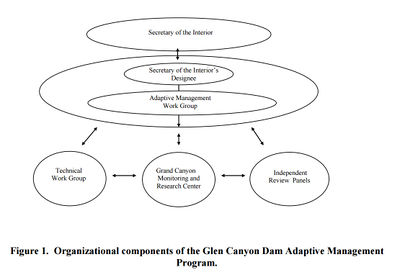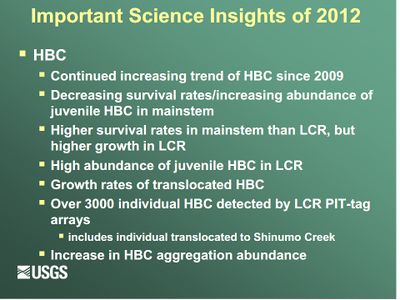Difference between revisions of "Science Advisors"
Cellsworth (Talk | contribs) |
Cellsworth (Talk | contribs) |
||
| Line 153: | Line 153: | ||
'''2018''' | '''2018''' | ||
| − | *[https://www.usbr.gov/uc/ | + | *[https://www.usbr.gov/uc/progact/amp/amwg/2018-08-22-amwg-meeting/Attach_08.pdf Science Advisors Program: FY18-20 Work Plan; FY18 Activities; and FY19 Plan PPT] |
*[https://www.usbr.gov/uc/rm/amp/amwg/mtgs/18feb14/Attach_10.pdf Science Advisors Program Work Plan for FY 2018 and Beyond PPT] | *[https://www.usbr.gov/uc/rm/amp/amwg/mtgs/18feb14/Attach_10.pdf Science Advisors Program Work Plan for FY 2018 and Beyond PPT] | ||
Latest revision as of 10:53, 9 January 2019
|
|
Science AdvisorsIndependent Review Panels, as called for in the Glen Canyon Dam Environmental Impact Statement (Reclamation 1995:38), are comprised of qualified individuals not otherwise participating in the long-term monitoring and research studies. The panels include peer reviewers, science advisors, and protocol evaluation panels whose primary responsibility is to assess the quality of research, monitoring, or science being conducted by the Adaptive Management Program and to make recommendations to improve it. Responsibilities of the panels include:
|
| Justification -- |
Scope -- |
Organization -- |
|---|
|


